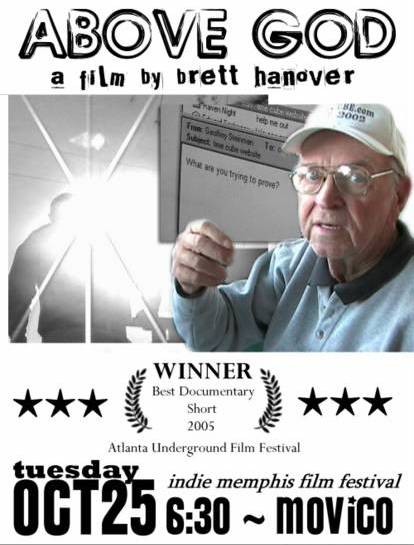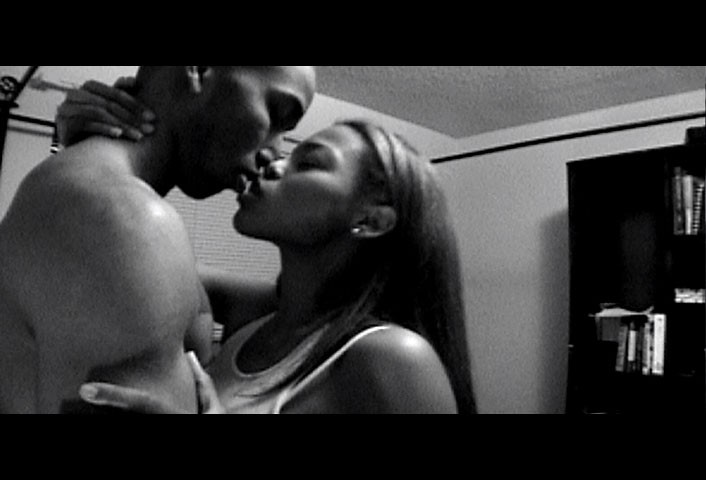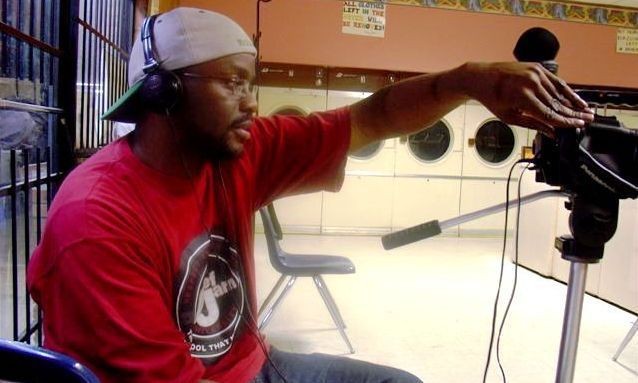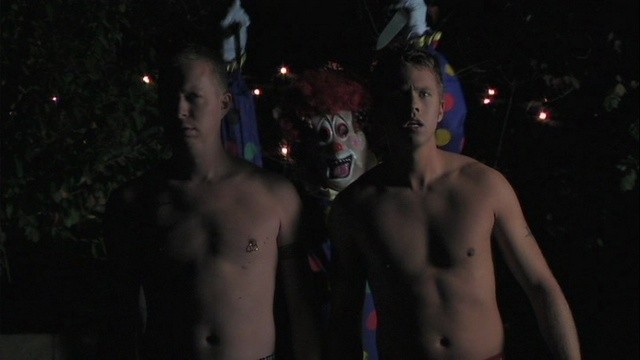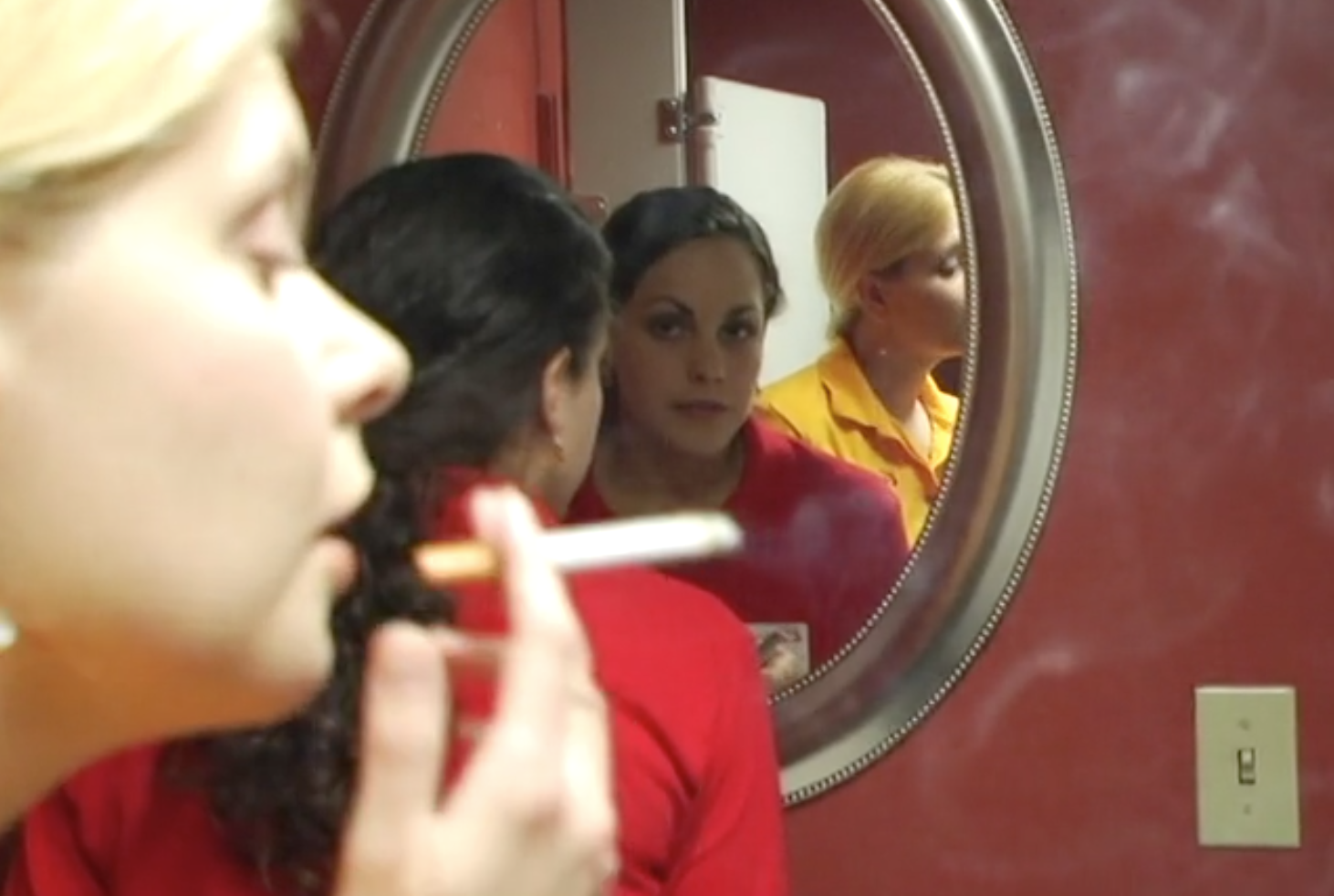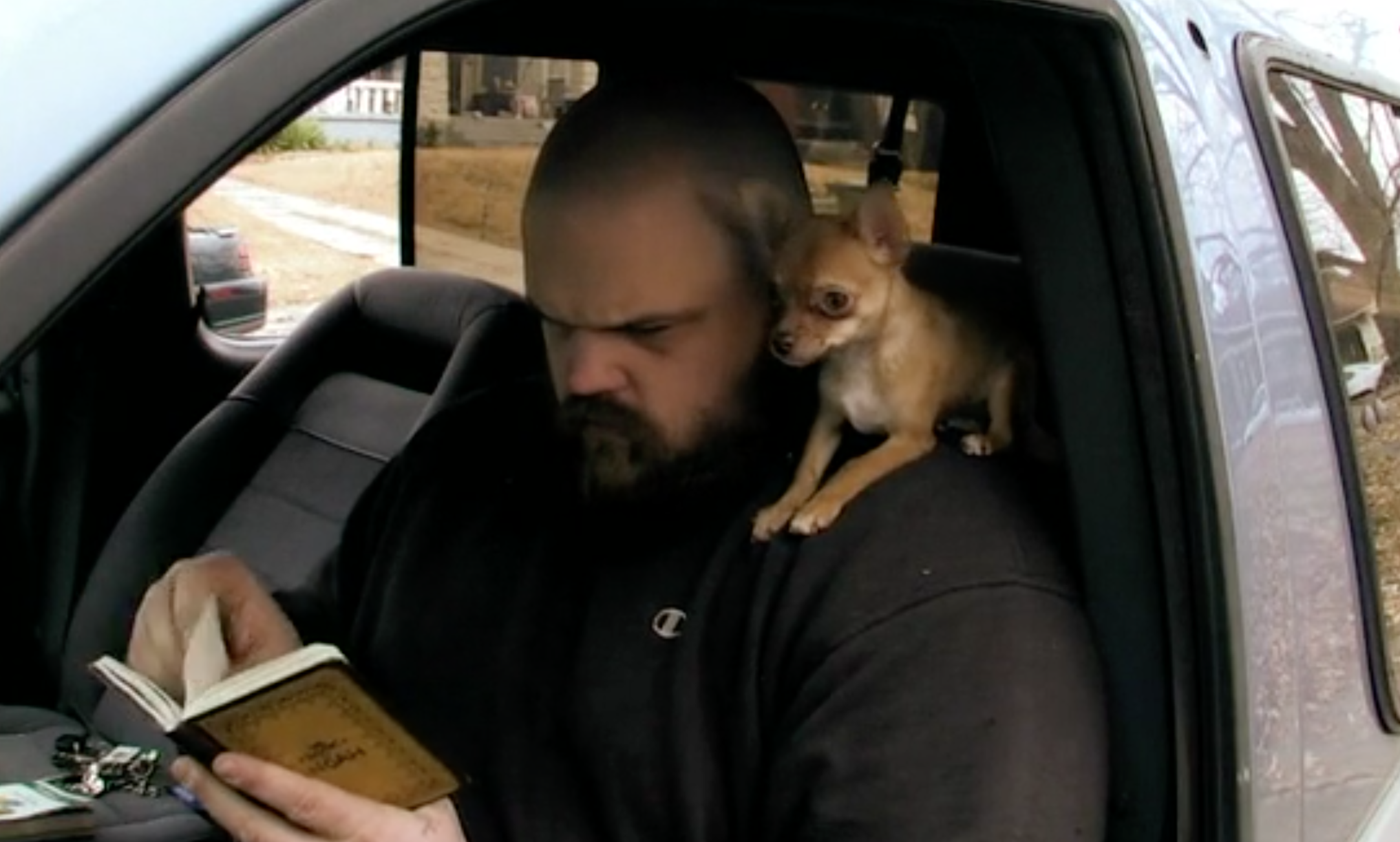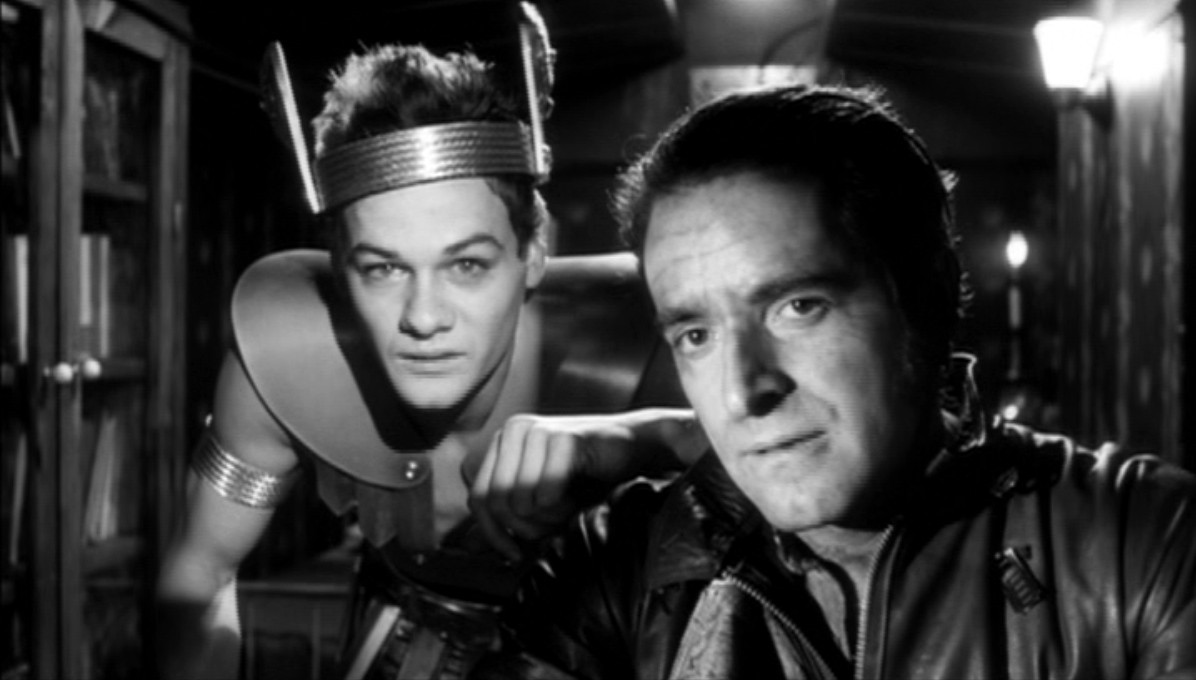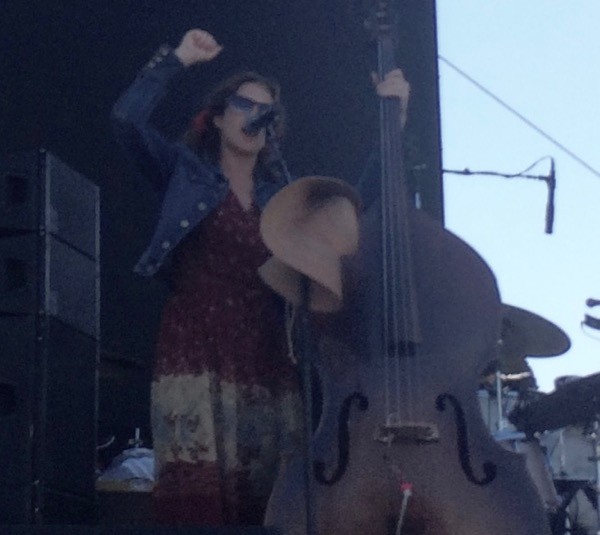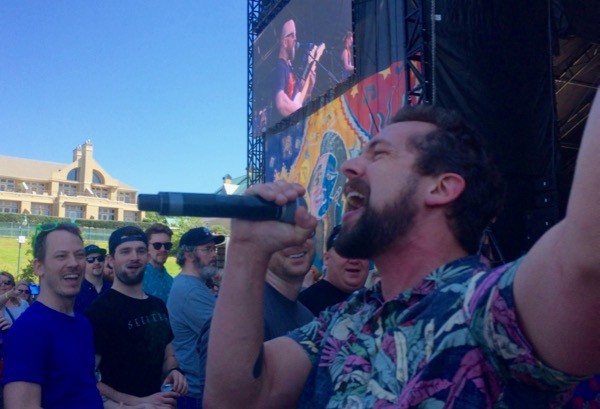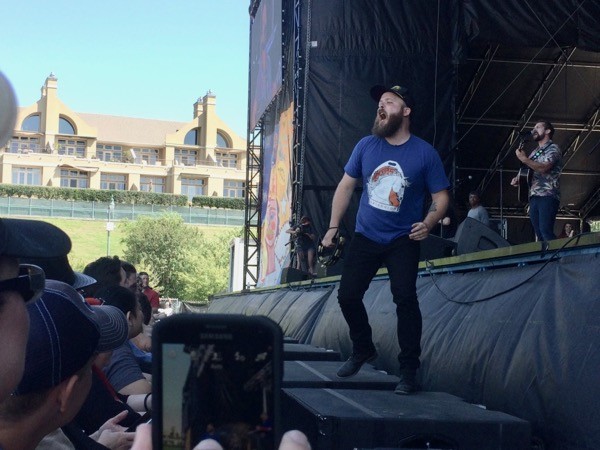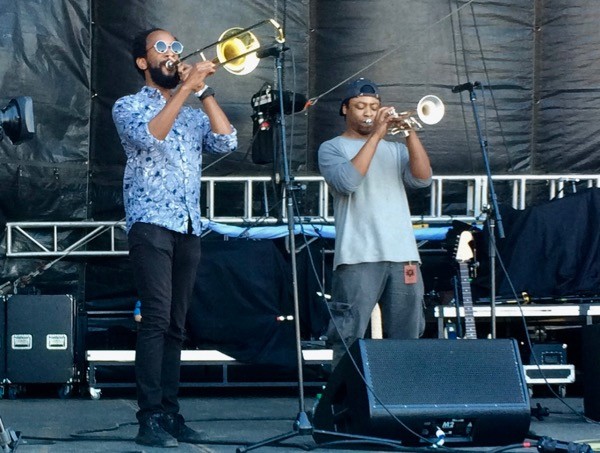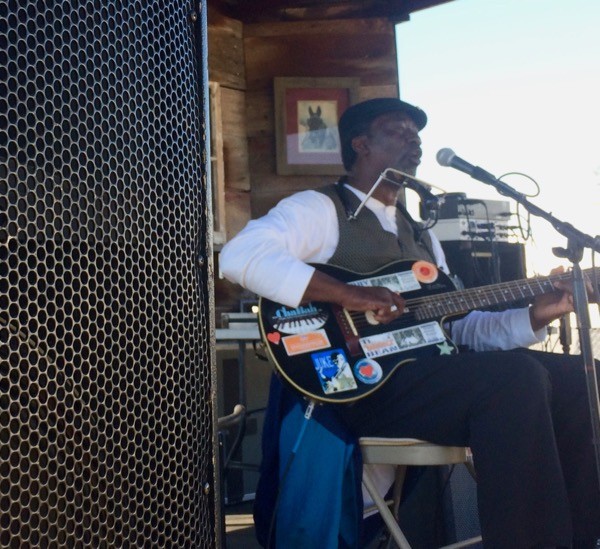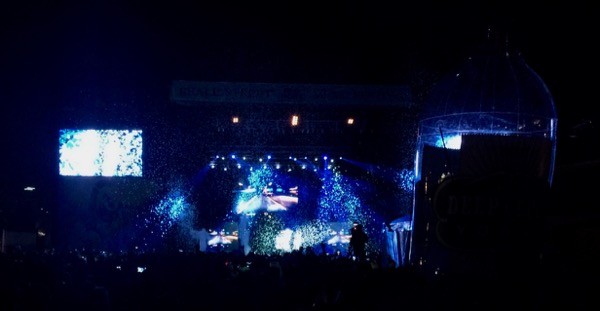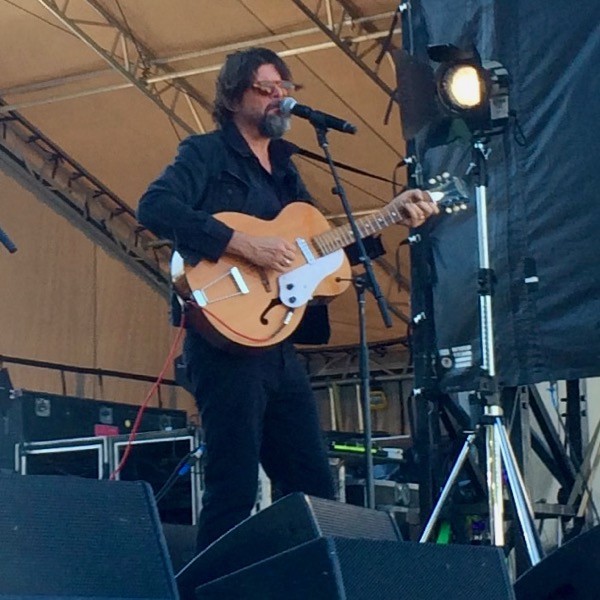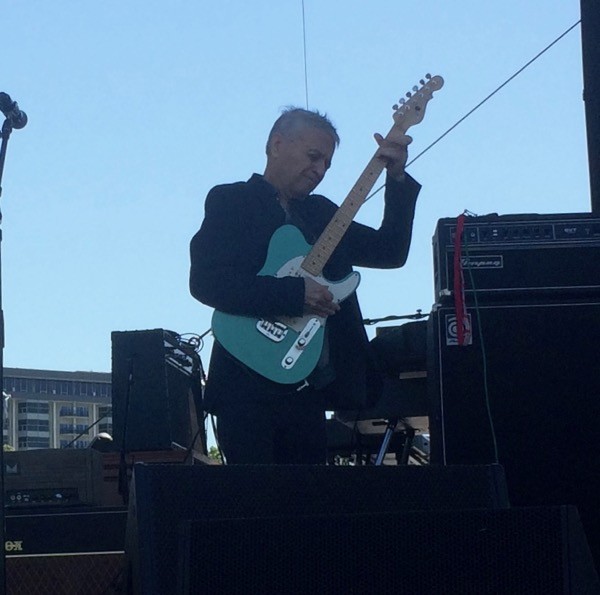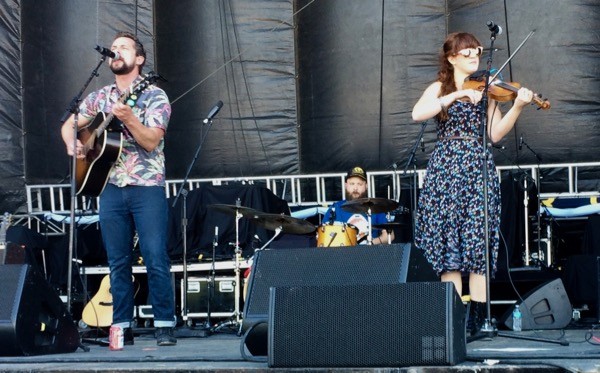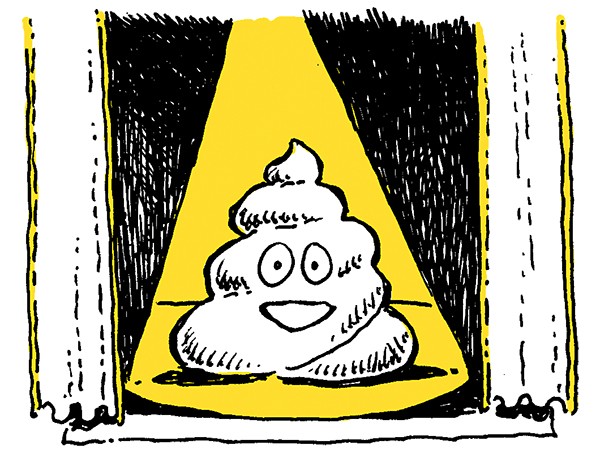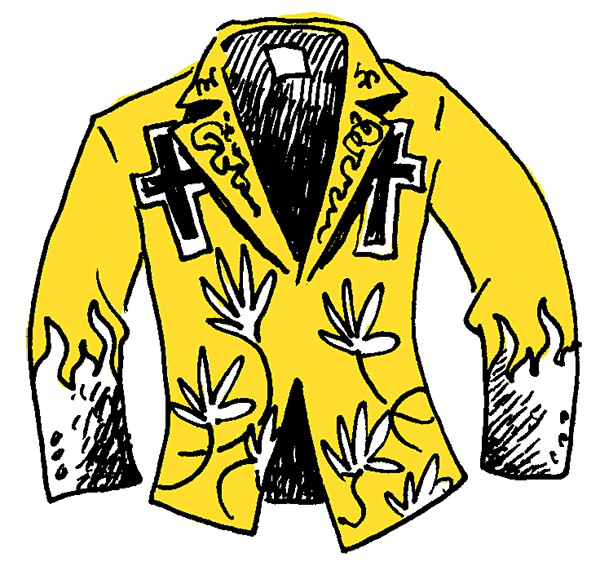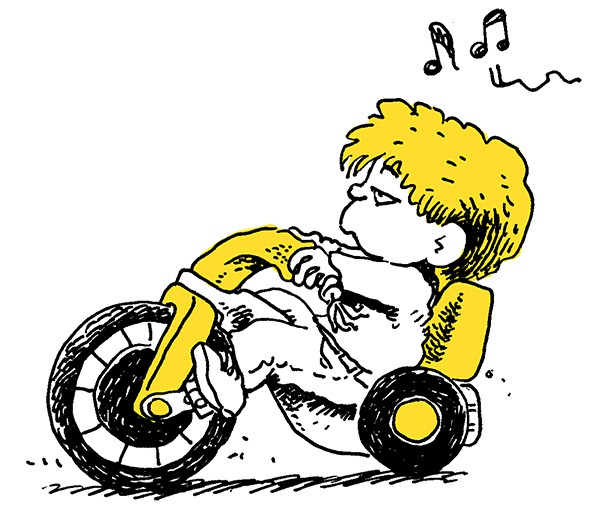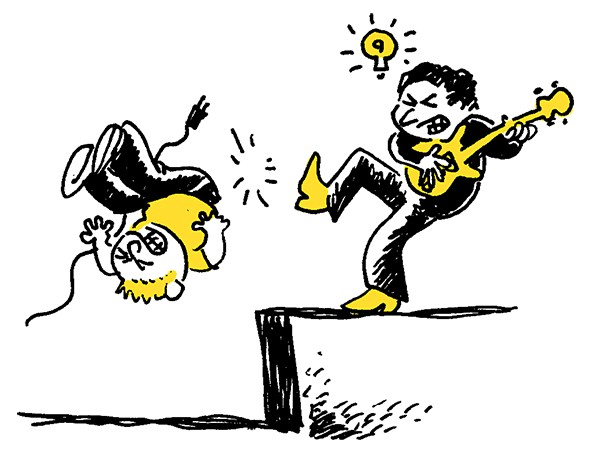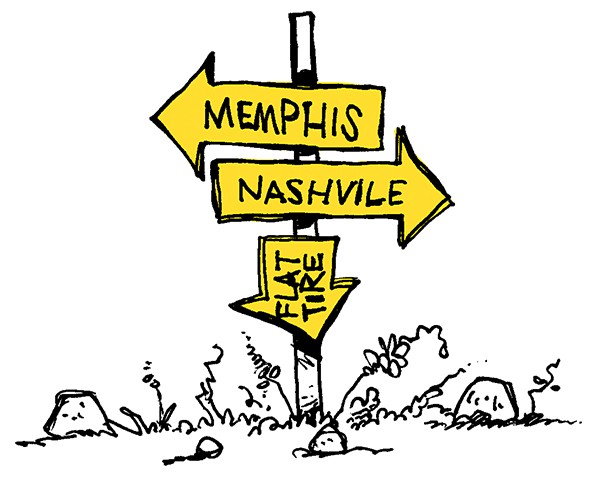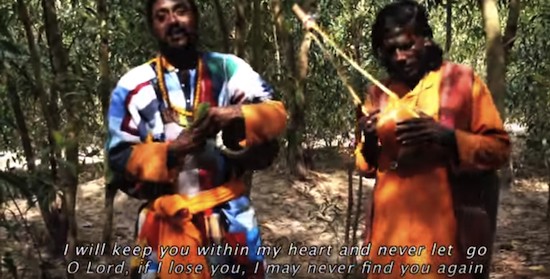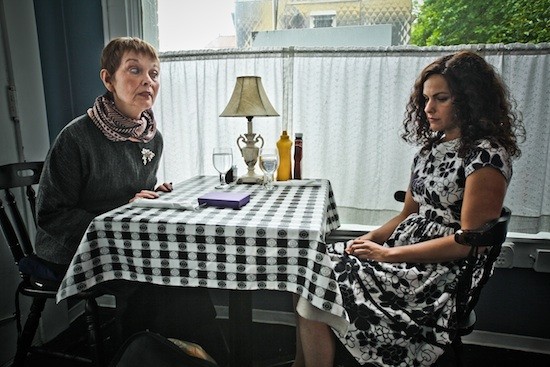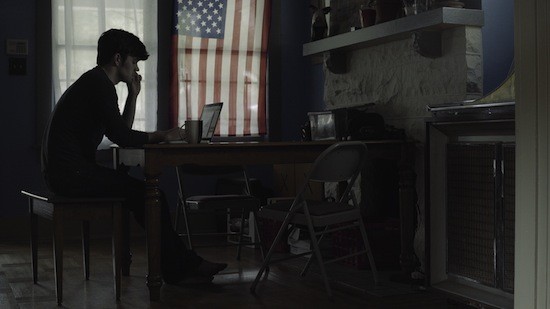With shelter-in-place still the most responsible policy for all of us, a lot of people are imagining that the once-thriving music scene in Memphis is withering on the vine. But a lot of people would be wrong.
Casting a wide net for signs of life recently, I’ve reeled in a full haul of ways that local musicians are rising to the challenge of making their art accessible, and, in some cases, even making a little money. Though their income sources have shrunk, musicians are honoring their best impulses to simply get their art out there.
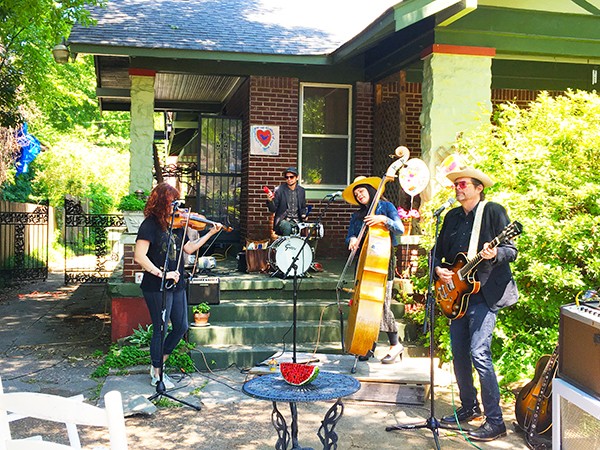
Amy LaVere and Will Sexton
There wouldn’t be a Flyer Music Issue without music. And, without question, the music and musicians are still there, working their craft, helping all of us cope — and with a new sense of connection and hope.
Players and Payers, Now Online!
We all know about live-streamed shows by now, of course. It’s become the new normal, and with our weekly online listings in The Flow, the Flyer has attempted to acknowledge and promote the practice. But it’s tricky to keep up with all the action. In the past week alone, we listed nearly three dozen separate streaming events, and we know we didn’t cover all of them. (Musicians, send us your announcements!) Several of these were virtual festivals with a dozen artists or more, all coordinating their homebound performances through a central hub. All told, these artists’ commitment to both social distancing and social unity (and, let’s face it, self-promotion) has been impressive. Thanks to the internet, perhaps we can have our cake and eat it too?
Nationally, live-streaming has had its ups and downs. The data-crunching company Chartmetric released a study earlier this month stating that: “The U.S. Top 100 YouTube artists surged during lockdown, but as daily infections continued to rise, that demand failed to keep pace, perhaps because consumers turned to other non-music content or other sources of entertainment as the reality of sheltering in place indefinitely started to set in.”
That leaves aside the question of why viewership should correlate in any way with the infection rate. Once you’re in place, either you’re prone to watch live music or you’re not. And of course, national data on “the top 100 artists” has almost nothing to do with the local scene, which celebrates independent artists in all their forms. By all indications, live-streamed music events are on the rise in Memphis. (The first edition of The Flow only listed two dozen events.)
And many are reaping some sorely needed financial rewards for their live-streamed efforts. Mark Edgar Stuart, who has done four such online events, was taken aback at the response. “The first two I did, I was like ‘Wow, I’ve never made that at a gig before!’ There might be something to this web show business, you know? This might carry on once COVID-19 is over.”
Most of Stuart’s events have taken the classic “man with guitar lives here” approach, where he plays for viewers from a chair in his home. But he’s been inspired by others who strive to lend their live events more panache. “I love seeing how people are getting creative with it. Graham Winchester, doing a show in the bathtub! I saw Jesse James Davis do one a few weeks ago. He had his backing beats happening and it looked cool. I was like, ‘Yeah, kudos.'”
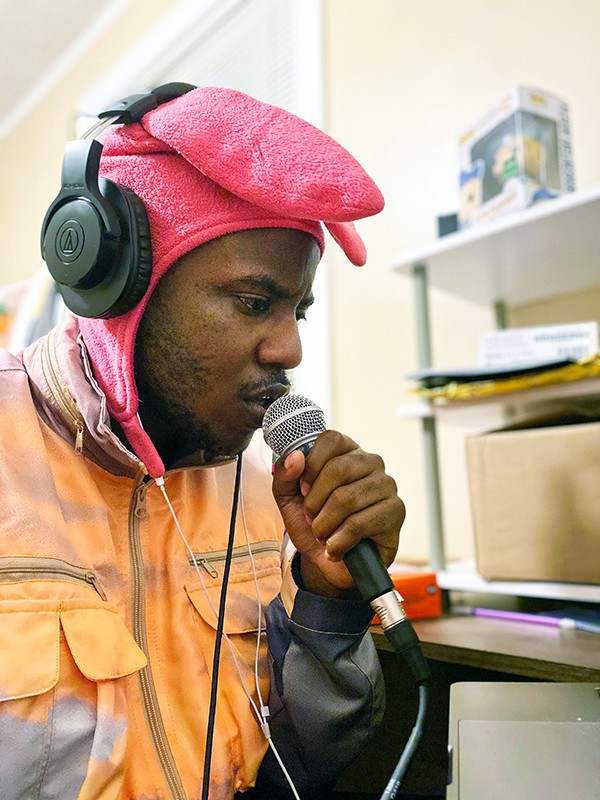
A Weirdo From Memphis aka AWFM
Striving for an original approach is on many performers’ minds. A Weirdo From Memphis, aka AWFM, says his plans for live events have been steadily evolving. “I decided to fall back until I can make it special. I don’t know if you’ve just logged on to Instagram on a random Friday night and seen like 12 Live bubbles across the screen? It used to be kinda like an exciting anomaly. ‘Whoa, somebody’s on Live, what are they gonna be doing?’ And now it’s like everybody has their own live TV show. Which is sometimes just them sitting there. People think that what they do is special, and they think that they’re standing out but don’t really zoom out and see the picture and see that you’re really just walking in the same direction as everybody. So I’d rather make sure, when I do pop on Live, it’s a thing to get excited about because I’m doing something different. I’ve really spent some time figuring out what that was supposed to be for me. And I have the answer now, and everything I need to do it is on its way to being in my hands. If you’re not really about the artistic experience, it’s like a microwave. I’m trying to put some food in the oven!”
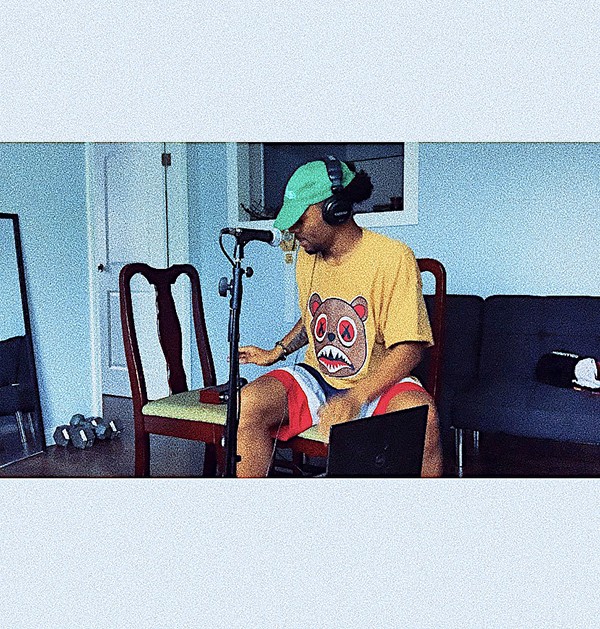
PreauXX
Fellow Unapologetic rapper PreauXX keeps his IG Live events fresh with the inherent spontaneity of freestyle, at which he excels. “Whenever I want to get some stuff out, I just go on IG Live for 30 to 40 minutes and just freestyle over beats. And whoever joins in my Live will give me a beat or give me a topic, and I just rap for 40 mintues, just for the hell of it.”
Of course, not everyone can rap extemporaneously with such aplomb, especially if your forte is making beats. But Unapologetic producer C Major has taken to the live internet anyway, via the beat battles hosted by a St. Louis-based group called Fresh Produce. As their web page (freshproducestl.com) explains, “Eight beatsmiths compete head to head in a tournament style bracket battle consisting of three rounds. Each producer is given at least one minute per round to impress the five judges, which include former winners from multiple beat battles, DJs, tastemakers from around the area, and the difference maker, The Crowd.”
As C Major points out, “It’s a whole experience, with interviews, clips of videos in between the beats. And the people in on the session can vote on whose beat they rock with the most. They’ve got a championship round on May 27th that I’m gonna be on again.”
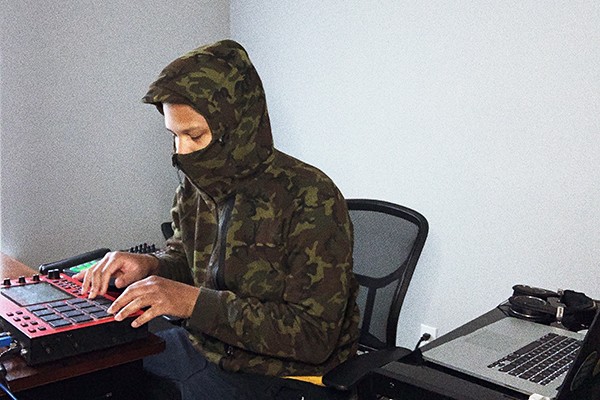
Producer C Major of Unapologetic
But C Major also points out another avenue for internet-based music, one he’s only now discovering: online gaming. “I’ve seen some crazy shit. They have whole festivals on Minecraft, which is ridiculous. There are bands, not even playing live, but with pre-recorded stuff they’re doing with their characters in Minecraft, and they’ve got a sea of people watching, just all characters on a computer. It’s crazy! You can be in the world of Minecraft and walk into a building and there will be a flyer and everything. And at a certain time, you go into a venue, and they’re just in there, the little blocks with guitars and shit. A drummer and shit. And your character is there with other characters. I’ve got two little boys, and they’re really into that world. So me and them stayed up one day and watched that. It’s crazy how creative people can be.
“Seeing that level of creativity just got me thinking,” he continues, “I can’t just hop on Live with my phone now. I mean, that’s cool, too. It has a level of personal-ness that you want, but at the same time, these people are out there, like they’ve been waiting for this moment.”
“My technology will shine now!” chimes in AWFM with a mad cackle.
Like so many of us (and like my own interview with them), the Unapologetic crew has also kept up their collaborative momentum with Zoom meetings, as they plan their next moves. “Every Wednesday, we have a big Zoom meeting with 12 to 15 people,” C Major explains. “It used to be a lot of planning and business, and we still do a lot of that. But now, I really cherish the time to just tell people what’s going on with me, and listen to what’s going on with them. It’s almost like therapy.”
PreauXX nods in agreement, adding, “Them kumbaya sessions are so soulfully needed.”
Another, more public version of stoking the creative fires has been pioneered by singer/songwriter Cory Branan, whose response to being a shut-in was to launch a homemade talk show, UMM, with his favorite fellow songsmiths. Episodes go live on Instagram every Wednesday, then remain archived on his YouTube channel. With such guests on the split-screen as Amanda Shires, Jason Isbell, Ben Nichols, and Frank Turner, it’s a veritable who’s who of today’s songwriting legends, and Branan’s queries reflect his own poetic approach to the craft: “You said when you finish a song, you’re like a sleepwalker who wakes up holding a bloody knife, surrounded by corpses,” he quips to Frank Turner, who responds, “I can still remember it being on the brain for a good few months, and then one day it’s finished …”
Other musicians are taking live-streamed shows to another level, albeit with careful social distancing in place. After all, many of us wish the drummer was always forced to stay six feet away. (ba-dum-bum!) Amy LaVere and Will Sexton, living together in matrimonial bliss, began their Thursday “Love Stream” shows on Facebook simply enough as a duo, but now have stepped out on their porch for some shows, inviting bandmates to play along from a safe distance.
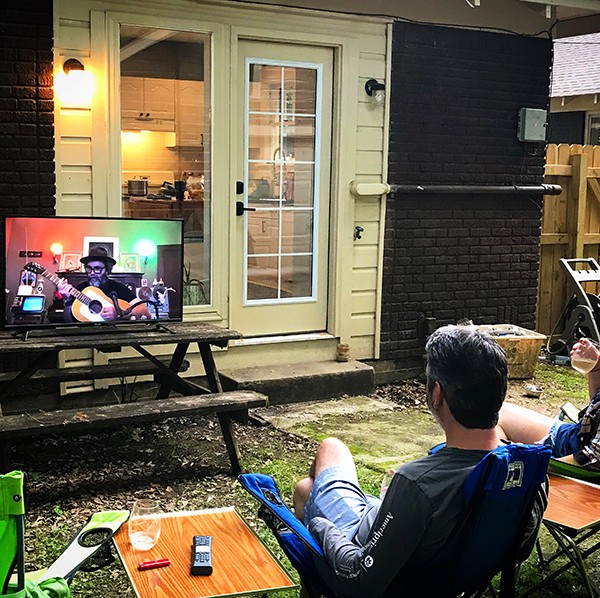
Mark Edgar Stuart — via virtual remote control
And now, almost as an outgrowth of this internet community, actual live music, in front of real people, is beginning to take form in unpredictable ways. When the Joe Restivo 4 held an impromptu concert on drummer Tom Lonardo’s porch last Wednesday, with social distancing in place, it attracted a small crowd, well-spaced, up and down the street.
But Mark Edgar Stuart may have the best, and strangest, example of this. As he explains, “Three weeks ago, I did a show for a bunch of pontoon boats. I had a superfan out in Eudora, Mississippi, who lives in a lake community, and he was like, ‘Dude, will you do a concert? I’m gonna promote it to the rest of the lake, and we’re gonna have all the pontoons come out to the dock and you can play.’ I was on a dock with a PA, nobody around me. And it was a listening crowd. You could smell the joints being passed around. It was fun! It was about 18 boats, maybe 50 or 60 people watching. They were all six feet apart.”
Venues Hunker Down
Such wacky alternatives do make players and fans alike a bit wistful about actual music venues. But, looking for signs of hope that we’ll one day have music in clubs again, I need turn no further than the sounds of hammers swinging down the street. As all the world shelters in place, B-Side Bar is giving its stage a makeover. “We had to raise it up a few inches to fit these new subwoofers under there,” says co-owner Brad Boswell. And they’re not the only ones making the most of the downtime.
“We’re just trying to get things that we never get done when we’re just blowing and going like we do,” says Jason Ralph of the Blues City Cafe. “When you’re as busy as we are all the time, you don’t have a chance to do a lot of the things that you want. So we’re trying to take advantage of this unfortunate break we’re having. Like redoing the kitchen floor, things like that.”
Owners and managers of music venues throughout the city are nervously pondering the day when people can congregate once more. Yet no one is sure what conditions need to be met for that to happen. Some plan to follow the authorities’ lead. “Everything will be based on CDC and what they put out, and what local government puts out,” says Ralph. “What I really don’t want is to make that happen and then have to close again.”
Yet some feel even an official go-ahead may not be enough. “We’re not gonna open up just because the governor says it’s okay, you know?” says Boswell. “We’re just gonna play it by ear. It’s possible we’ll start out doing live-stream shows first, before we fully open. But we’re not even discussing it yet at this point.”
Brett Batterson, president and CEO of the Orpheum Theatre Group, thinks smaller venues will have an advantage. “I think the smaller venues like Halloran Centre will open first. Gradually we’ll get to a point where the Orpheum will reopen.” Meanwhile, they’re hosting home-recorded performances in their Memphis Songwriters Series, regular live-streamed events on Facebook every Saturday.
Most see reopening as a mirror image of how they shut down. Boswell notes that B-Side was one of the first to shut down, and may be among the last to open again, perhaps starting with only live-streamed shows.
Blues City Cafe first phased out bands, then allowed dining customers at half-capacity for more distancing, then offered only takeout before closing completely. Ralph thinks featuring live bands will be the last phase of reopening, but even that will take some adjustment. “A lot of people don’t realize, it’s gonna look a lot different, regardless,” he says. “Even once we’re going 100 percent, as busy as we are on Beale Street, it’s not gonna be like it was any time soon.”
Laying Down Tracks
While we await such changes, musicians soldier on, and records — the other side of the musical coin — are continuing to be made, by hook or by crook. Since the quarantine era, there’s been a flowering of tracks swapped via the internet. While many producers and engineers have found the explosion of home recording gear to be a mixed blessing (pun intended), in times like these, such home rigs are keeping many of them busy. Since shelter-in-place began, countless players have gone back to finish tracks, often inviting colleagues to add overdubs in their own home studios, to then assemble later into a final mix.
As usual, the Unapologetic collective is ahead of the curve. Nothing as clunky as email is needed. As C Major explains, “We’ve actually got it set up to where the whole ProTools folder is on Dropbox, so whenever you record [in your home studio], I’m getting the updated session immediately. And I’ll go in and tweak stuff. So we’re basically kind of in the same studio, just over the internet. We just adapted that way. Dropbox updates in real time. So if anyone makes any change to the session, it’s gonna show up on mine.”
Others take a hybrid approach, stepping carefully into the city’s professional studios, armed with masks and sterilizer. Calling me from Delta-Sonic Sound, the studio run by Big Legal Mess producer Bruce Watson, Mark Edgar Stuart gives an on-the-scene report. “Will is in the tracking room, wearing a mask. I’ve been wearing a mask all day and am now outside. Bruce has been wiping down the headphones and all that kinda business.”
A similar scene, with even more players, was in place at the famed Royal Studios two weeks ago, when Michael Graber invited his favorite players to record new material — composed during his days and nights as a shut-in — with Boo Mitchell at the helm. “A lot of musicians who are usually busy with gigs or on the road were able to join in on the sessions,” he explains. “So we planned to go in and properly distance and record. And we ended up, in two days, recording 24 original songs. Some of these songs are strange compositions. We’d use traditional bluegrass instrumentation on some, but then we were throwing in dulcimers, harmoniums, bouzoukis, six-part harmonies, that kind of stuff. So it got pretty wild.”
Though everyone wore masks, hosting so many players at once proved challenging, and Graber sounds a cautionary note: “It was really, really hard to sing. I ended up taking my mask off. As did some of the other background singers. We tried to keep distanced. We were very conscious the whole first 12-hour day. But by the end of the second day, we were getting tired, people were rushing to the food when we had it out. The longer we went, the more the challenge it was to hold up those standards. It’s just what it is. It was a microcosm of what’s gonna happen as we re-enter society. First we’re very cognizant, and then we slowly let our guard down.”
AWFM says, “When we create, it’s really on top of each other, kinda like a family vibe, but that’s not the wisest thing to do right now. Especially with everybody going back home to their families. ‘Cause you can be like, ‘I’m good,’ but not realize that you’re a carrier of it and take it to somebody who’s less equipped to deal with it. That would be pretty devastating. I’ve seen people that have accidentally killed their parents or grandparents, just by having a mild case of it. They had already been existing in the house for two weeks, and really messed things up. So we haven’t created face-to-face in a minute. It’s a lot to lose, man.”
Musicians and non-musicians alike struggle with such contradictory impulses these days: to be safe, to protect others, but at the same time, to create, to collaborate, to commune. Perhaps the Unapologetic approach can benefit all of us. Says PreauXX, “For all of us, it’s been a survivor’s mentality. You can either lounge around or you can adapt.”
NIVA
More than two months ago, Growlers hosted metal bands Weedeater and The Goddamn Gallows during what would become the venue’s final show before it was forced to temporarily shut its doors due to stay-at-home orders caused by COVID-19.
Within that period, Growlers has seen a loss of tens of thousands of dollars, and with a definite reopening date unknown at this time, that loss could add up to be much more. Growlers has since begun offering takeout food and has applied for and received loans from the Small Business Administration (SBA). But according to Mike Glenn, managing partner and national talent buyer for the venue, that’s not going to be enough to keep them afloat until they can reopen.
“We have a great landlord in Yong Rhee, so he’s been helping in regards to rent,” he says. “But there’s utilities, certain taxes, etc. We are accruing a debt load, as are all venues.”
Nearly a month ago, Glenn caught wind of independent venues throughout the country joining a group called the National Independent Venue Association (NIVA) who have been seeking to rally support from state representatives and from U.S. congressional leaders to provide additional federal aid for venues.
“Dayna Frank, [owner of First Avenue in Minneapolis and president of NIVA], is a friend of mine, and I heard rumblings of her and a few other indies starting this,” says Glenn. “So, being in this business my entire life, this was something important to me. We don’t have billions like Live Nation or AEG. So I’m very passionate about standing for indie venues and promoters.”
NIVA, which comprises more than 1,600 independent venues throughout the country like Minglewood Hall, Exit/In in Nashville, and the Troubadour in Los Angeles, has issued a letter to the U.S. Congress asking legislators for further assistance to help keep overhead charges and taxes paid until they can present shows again.
In the letter addressed to Speaker of the House Nancy Pelosi, Senate Majority Leader Mitch McConnell, Senate Democratic Leader Chuck Schumer, and House Minority Leader Kevin McCarthy, the collective asked that the SBA’s Paycheck Protection Program be revised to increase the program’s loan cap and extend the program until all the affected businesses can resume operations at full capacity. They also asked for other modes of assistance, including establishing a business recovery grant fund, granting various forms of tax relief, and extending unemployment insurance to contract workers and artists who wouldn’t normally receive benefits.
Glenn has worked closely with Chris Cobb, owner of Exit/In, contacting Tennessee Representatives Steve Cohen and Jim Cooper, as well as Senators Lamar Alexander and Marsha Blackburn, to ask for their support.
“The conversations with them have been very promising,” says Glenn. “All have supported the efforts.”
Last week, there was progress on the local level when the Shelby County Commission approved an amendment to the 2021 fiscal year budget that would allot $100,000 to assist local venues like Growlers, Minglewood Hall, and Levitt Shell with rental and employee assistance.
“I’ve only heard of a few other cities in the country doing that,” says Glenn. “So it’s wonderful having great local leadership who support the arts.”
According to Glenn, this is a good starting resource for venues in Memphis to be able to stay on their feet until they are able to put on shows again.
“We just want to get back to what we love, putting on events for people to have a great time,” he says. “But we also want to be safe about it. There’s just something about a room full of people vibing together that can’t be replicated with other options. So, hopefully, we’ll get back to that sooner than later. The people are the reason I’m in the business in the first place.” — Julia Baker
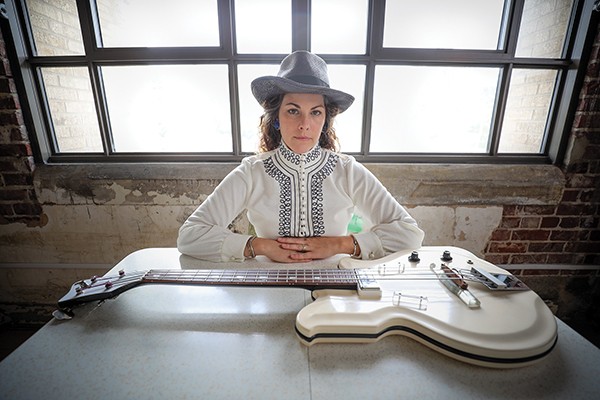 Jaime Harmon
Jaime Harmon 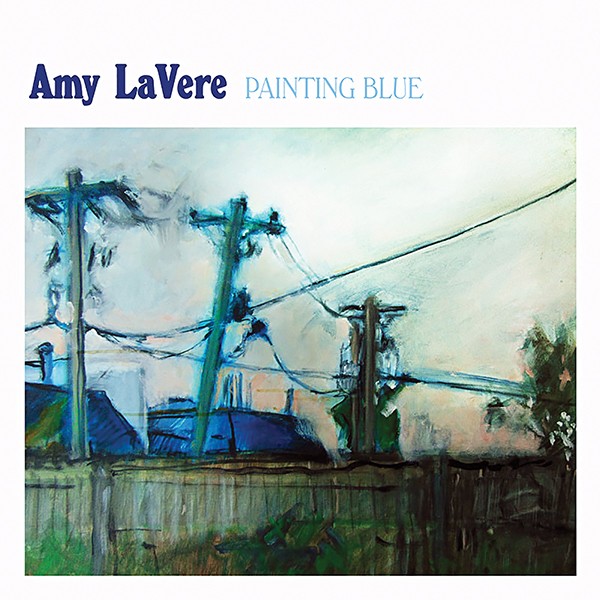
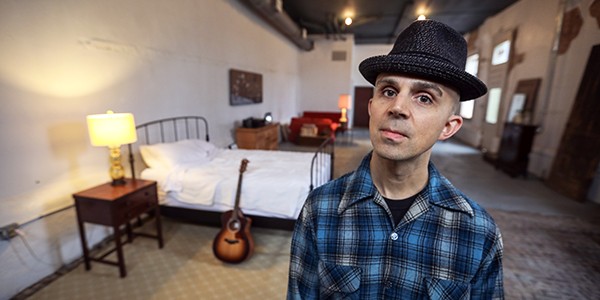 Jamie Harmon
Jamie Harmon 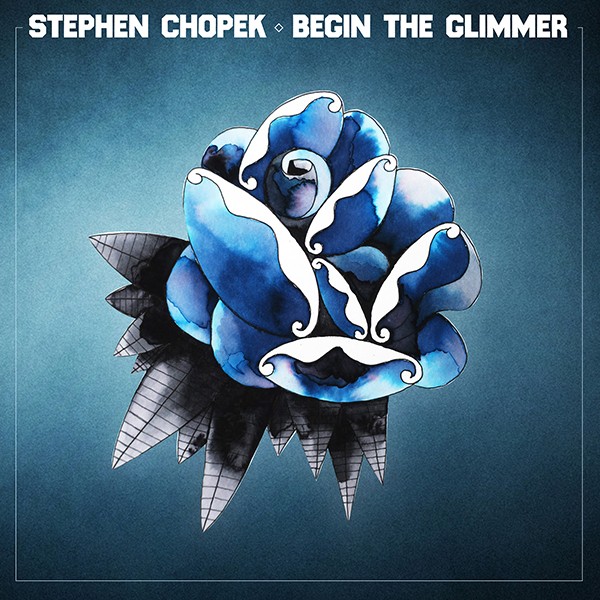
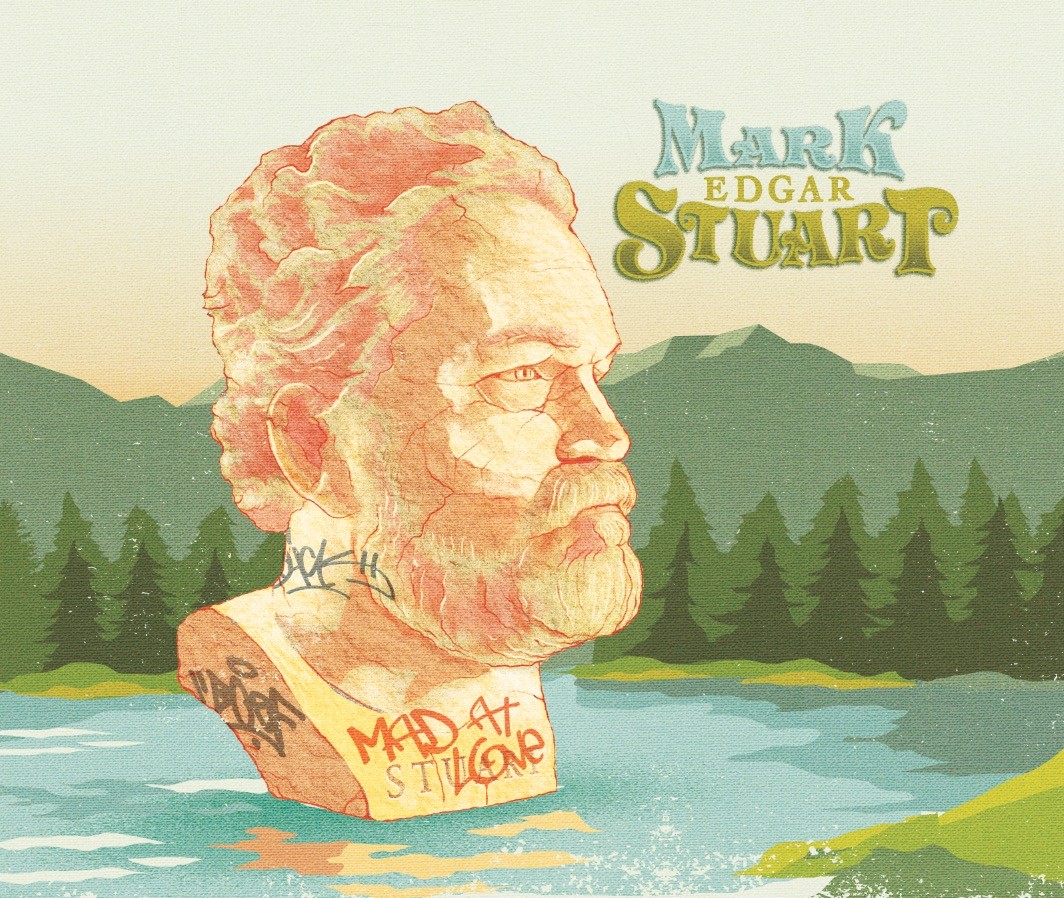
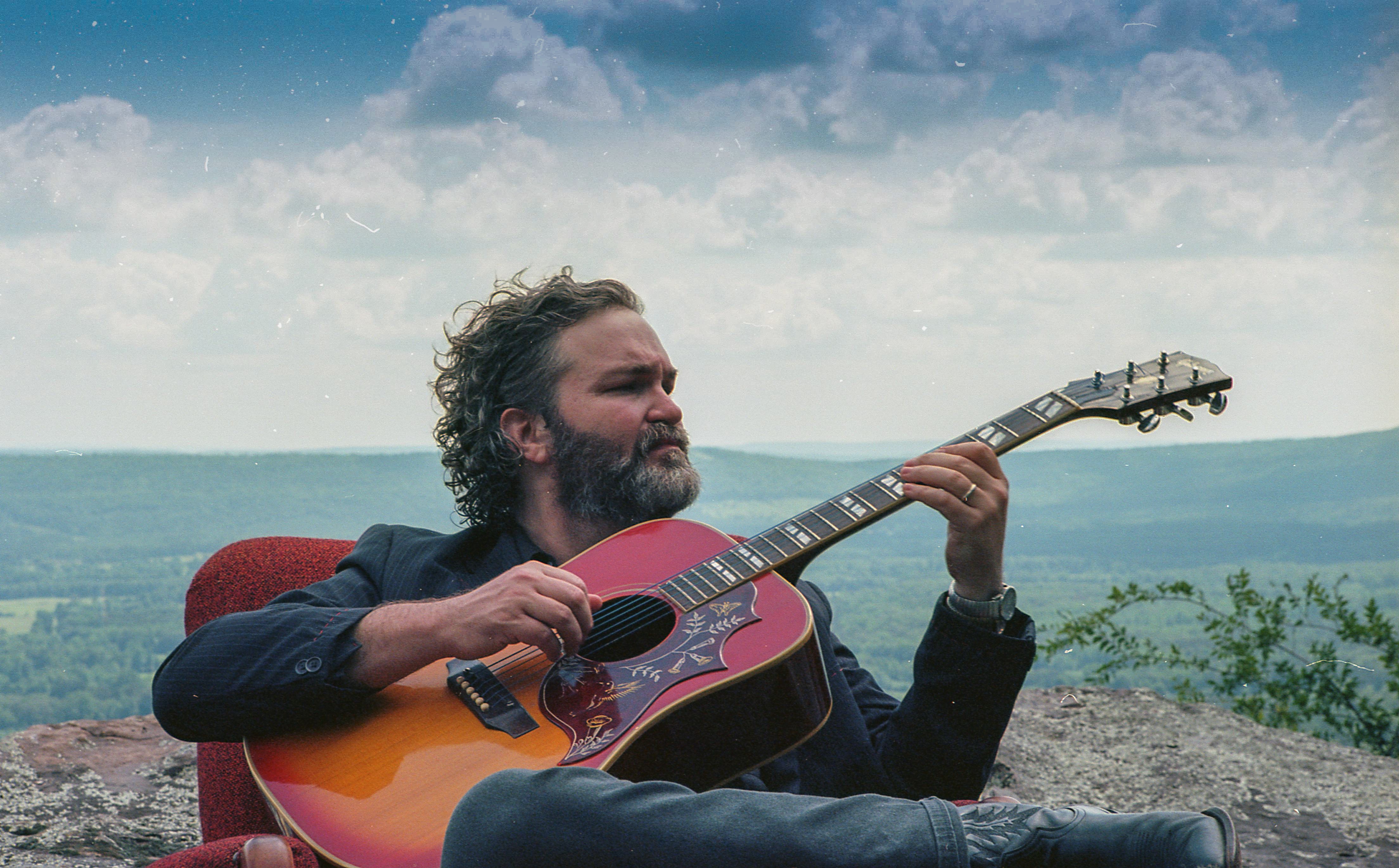
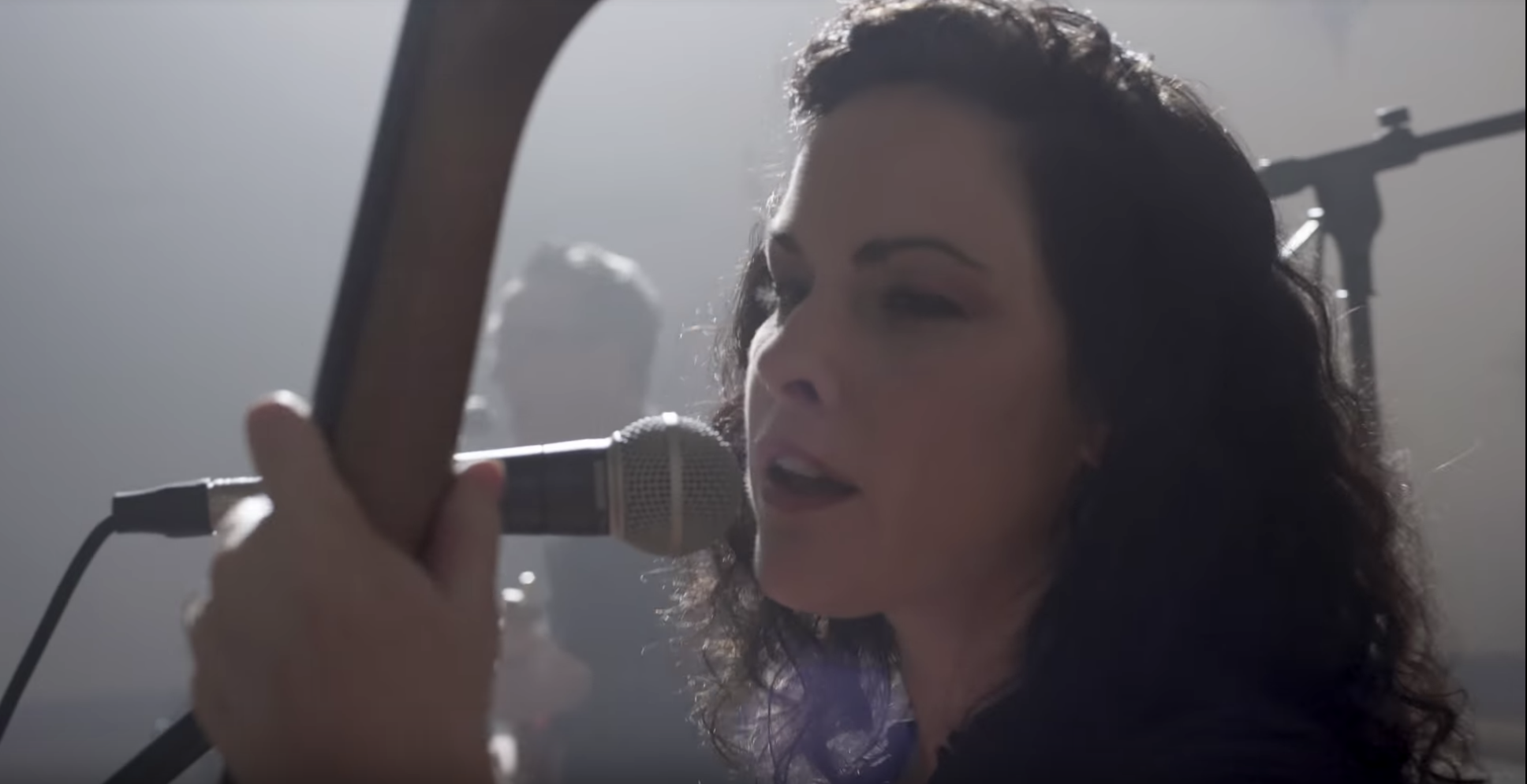
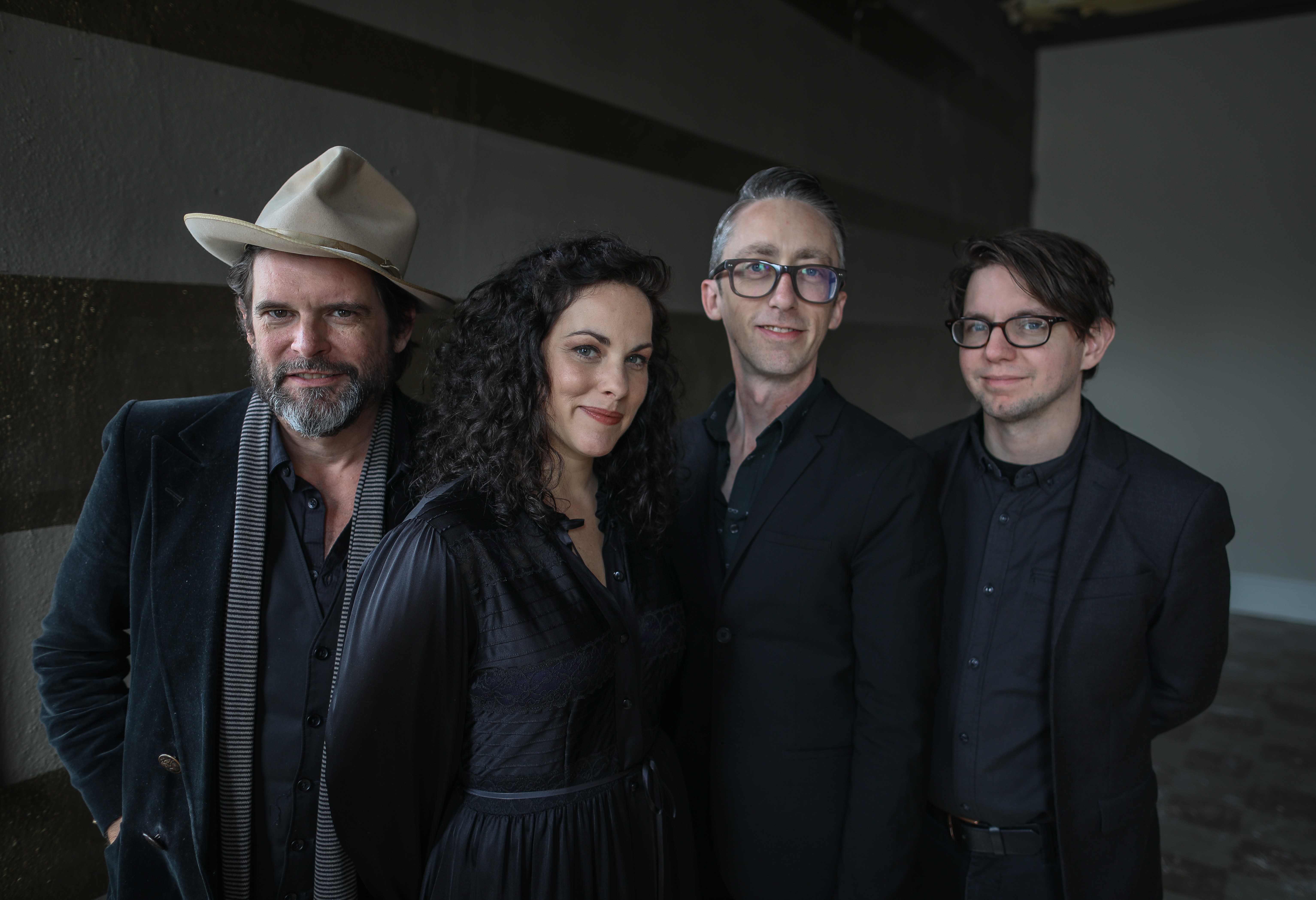 Jamie Harmon
Jamie Harmon  Matt White
Matt White 